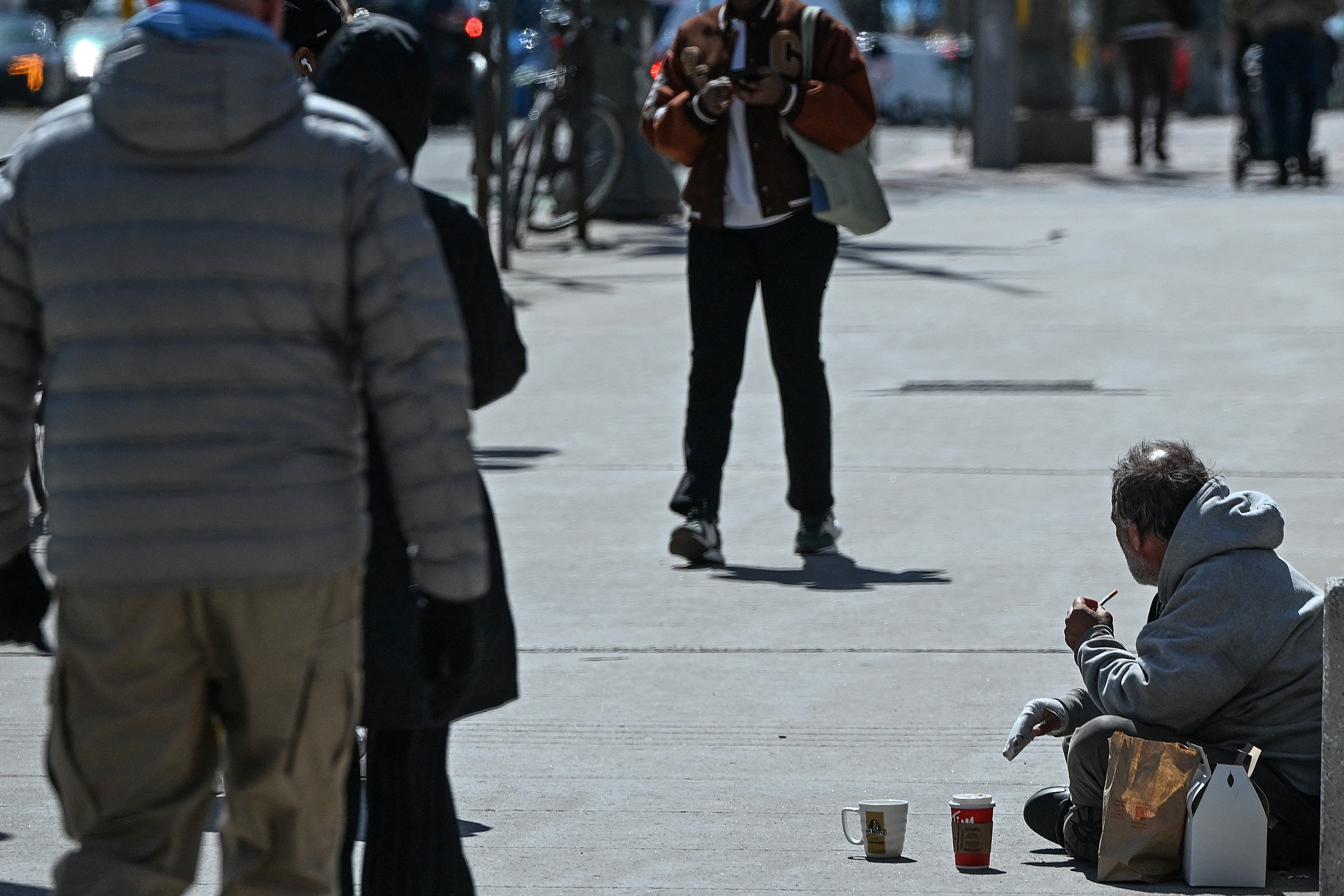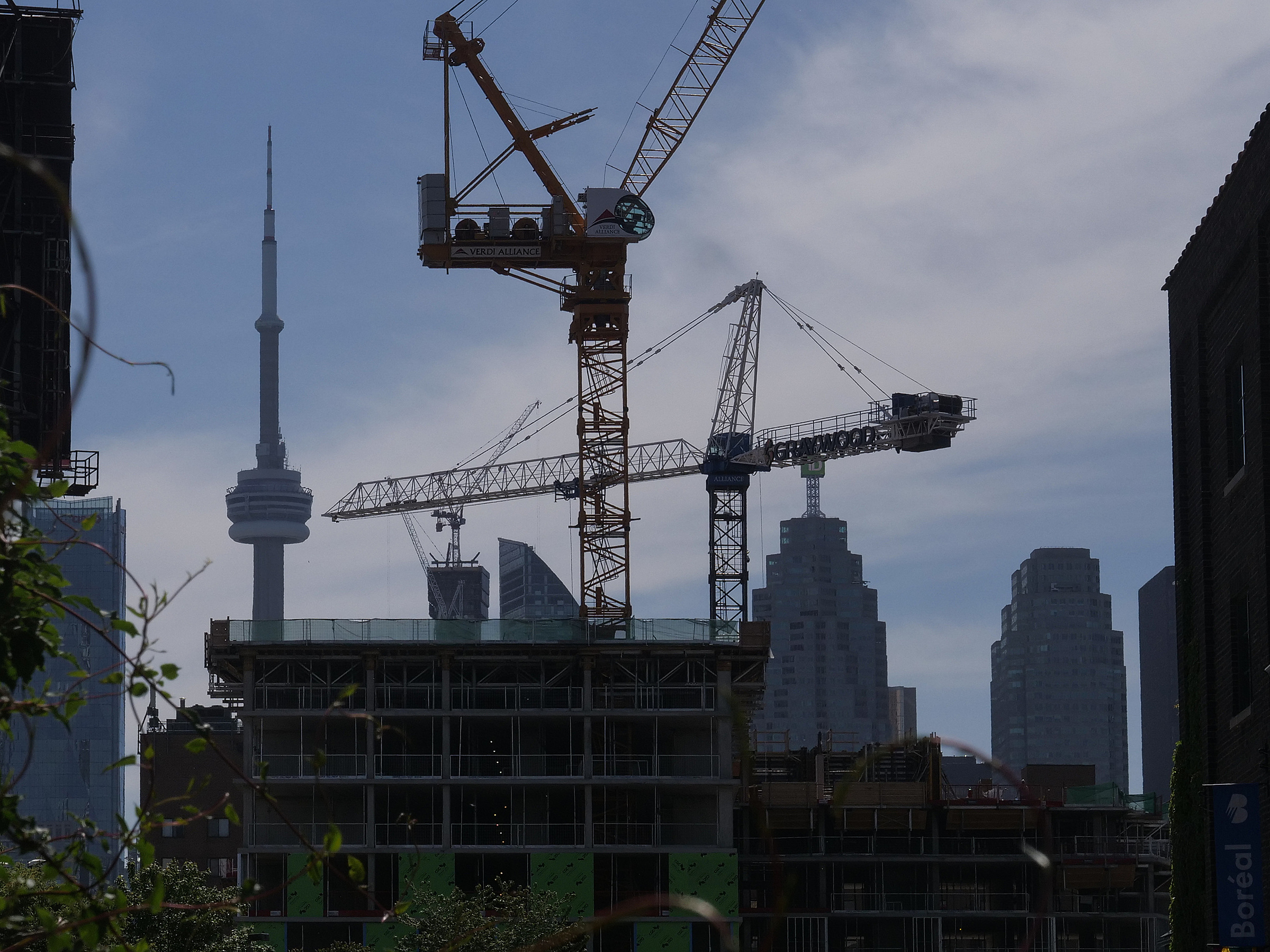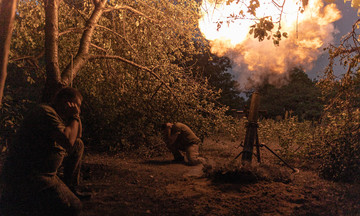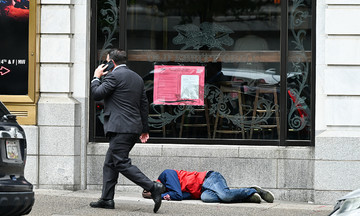The Canada Mortgage and Housing Corporation (CMHC) released a report last week projecting approximately 237,800 housing starts this year, down from 245,367 in 2024. This figure is forecasted to decrease further in 2026 and 2027.
Meanwhile, CMHC states that Canada needs to build an additional 480,000 homes annually over the next decade to address the country's worsening housing crisis.
Housing starts in British Columbia and Ontario have dropped by 8% and 25% respectively, reflecting the increasing unaffordability of housing in these areas. "Affordability remains a significant issue, contributing to the slowdown in new home construction", the CMHC report noted.
 |
Homeless people on a street in Ottawa, Ontario, Canada, on 30/4. Photo: AFP |
Homeless people on a street in Ottawa, Ontario, Canada, on 30/4. Photo: AFP
Analysts explain there is typically a lag time of at least 12 years from when land is designated for development to when people actually move in. This delay is even longer if developers need to build roads and essential infrastructure such as electricity and water systems.
Current market conditions are also impacted by several factors: rising interest rates, unemployment, labor costs, and material prices; uncertainty stemming from trade tensions with the US; slowing population growth; and declining pre-construction sales.
In most Canadian cities, finding suitable land for housing construction presents a constant challenge. Real estate developers and some analysts point to development taxes and fees, often borne by developers, as drivers of increasing costs. These fees are ultimately passed on to buyers, creating further obstacles to construction.
Paul Smetanin, president of the Canadian Centre for Economic Analysis (CANCEA), said housing starts began declining in 2024 and have worsened since the beginning of this year.
Smetanin explained that investors have pulled back from certain segments of the real estate market, particularly pre-construction condominiums. Some developers have opted to delay projects until market conditions improve.
 |
A residential area in Vancouver, British Columbia, in 2021. Photo: AFP |
A residential area in Vancouver, British Columbia, in 2021. Photo: AFP
Housing analysts suggest that taxes and bureaucratic processes, involving all three levels of Canadian government (federal, provincial/territorial, and municipal), play a significant role in the current housing stagnation.
Municipal governments in Canada tend to rely heavily on taxes from construction and housing development. In response to the dual crisis of housing scarcity and high prices, some cities have started reducing these fees in recent months.
While some municipalities are reluctant to relinquish this substantial revenue source, doing so can lead to a decrease in new construction, ultimately reducing tax revenue. In the Great Toronto area alone, the government could lose over 6 billion USD in tax revenue due to the decline in new housing, warned Mike Moffatt, a former economic advisor to former Prime Minister Justin Trudeau.
These new forecasts and estimates of declining housing starts contradict political commitments to increase the national housing supply.
In the recent federal election, all major parties announced plans to increase housing construction to lower real estate prices and address rising homelessness in many cities.
 |
Construction site in Toronto, Canada, on 29/5. Photo: Reuters |
Construction site in Toronto, Canada, on 29/5. Photo: Reuters
The ruling Liberal Party of Canada (LPC) pledged to build 500,000 homes annually over the next 10 years, a rate not seen since after World War II. They also promised to exempt Goods and Services Tax (GST) on new homes under 1 million USD for first-time buyers and halve urban development fees for multi-unit housing projects.
Gregor Robertson, Minister of Housing and Infrastructure, did not respond to interview requests for comment on the new CMHC estimates.
"It seems the government hasn't grasped the message or isn't prepared to take the necessary steps to address the crisis", Moffatt warned.
Duc Trung (National Post, Globe and Mail, CBC)












